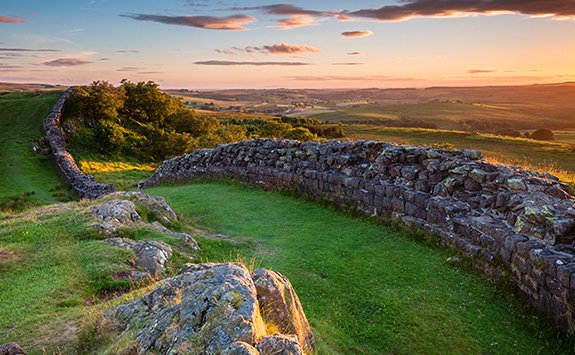Archaeology
Archaeology is the study of the past from the origin of species to the present day.
About the programme
UCAS Code: BA Combined Honours (Y001)
Archaeology can be combined with almost any other Combined Honours subject(s)- this is the study of people and their material worlds from prehistory to the present.
Archaeology brings together a wide range of disciplines and approaches to study people and their material worlds from prehistory to the present. You will have the opportunity to choose from modules which cover archaeological methods, including hands-on, theoretical and scientific analyses to investigate, among other things, ancient landscapes, monuments, art, bodies and artefacts to understand people’s lives in the past.
As well as lectures and seminars, our modules include fieldtrips and hands-on work with collections from the Great North Museum including Greek iconography and Roman inscriptions. You can choose to work in the laboratory with animal bones, or with satellite data and mapping using computers, or consider questions of human identity, such as gender, race and belief – check out our module list!
You also have the option to do fieldwork (excavation) as a funded summer training placement. Archaeology is a great subject for building a range of graduate skills. Alongside archaeological or heritage jobs our students go on to a range of careers including teaching, finance, law, business leadership and the civil service.
With so many opportunities to learn with other students and staff many Combined Honours students find a home in Archaeology. We also have a vibrant and active Archaeology Society for you to get involved in.
There are no special requirements for taking Archaeology as one of your subjects. Most A-level subjects are relevant in such a broad discipline.

Stage 1
Students study either 40 or 60 credits from the list below in Stage 1. It is recommended that students study ARA1027 ‘Introduction to Archaeology’ in Semester 1, and HCA1007 ‘Stuff: Living in a Material Word’ in Semester 2.
|
Module Code |
Module Title |
Credit Value |
Semester |
|---|---|---|---|
| ARA1026 | Introduction to Archaeological Science | 20 | 2 |
| ARA1027 |
Introduction to Archaeology (Recommended) - Please see above note about fieldwork |
20 | 1 |
| ARA1028 | Prehistoric Britain | 20 | 1 |
| ARA1030 | The Archaeology of Britain from the Romans to the 20th Century | 20 | 2 |
| HCA1007 | Stuff: Living in a Material World (Recommended) | 20 | 2 |
| HCA1008 | Global Ancient Histories | 20 | 1 |
Stage 2
Students study either 40, 60 or 80 credits from the list below in Stage 2.
|
Module Code |
Module Title |
Credit Value |
Semester |
|---|---|---|---|
| ARA2001 | Archaeological Theory and Interpretation | 20 | 2 |
| ARA2011 | From Lascaux to Knossos: Prehistoric Europe | 20 | 2 |
| ARA2020 | Fieldwork and Post-Excavation: Archaeology in the UK | 20 | 1 |
| ARA2091 | Archaeologies of Roman Empire: The Roman World from Augustus to Justinian | 20 | 1 |
| ARA2097 | Colonial Worlds: History & Archaeology | 20 | 2 |
| ARA2101 | Artefacts (capped at 30) | 20 | 1 |
| HCA2000 | Sacred words and dirty deeds: Thriving in Late Antiquity | 20 | 2 |
Stage 3
Students study either 40, 60 or 80 credits from the list below in Stage 3.
If you wish to take a ‘Dissertation’ module (there is no requirement to do so) you can select one of the four available (i.e. ARA3200, ARA3201, ARA3202 or ARA3203). *Credits in the Dissertation modules are split 10 credits in Semester 1 and 30 credits in Semester 2.
|
Module Code |
Module Title |
Credit Value |
Semester |
|---|---|---|---|
| ARA3016 | Survival and turmoil in Byzantium and beyond: Byzantine archaeology, art and text | 20 | 1 |
| ARA3036 | Neolithic and Early Bronze Age Britain in its European Context | 20 | 1 |
| ARA3114 | Regionality and the Fall of Rome | 20 | 2 |
| ARA3295 | Fundamentals of Digital Humanities: Computer Literacy, Data Analysis and GIS (capped at 60) | 20 | 1 |
| ARA3296 | The Sharp Edge of Empire? The Armies and Frontiers of Imperial Rome | 20 | 2 |
| ARA3200 | Dissertation in Archaeological Science | 40 | 1&2 |
| ARA3201 | Dissertation in Archaeology: Research as Professional Practice | 40 | 1&2 |
| ARA3202 | Dissertation in Ancient History and Archaeology: Research as Professional Practice | 40 | 1&2 |
| ARA3203 | Dissertation in History and Archaeology: Research as Professional Practice | 40 | 1&2 |
| HSS3500* | Combined Honours Final Year Project | 20 | 1&2 |
| HSS3099* | Combined Honours Final Year Project | 40 | 1&2 |
*Undertake an in-depth, independent research project with flexibility to select a topic related to one or all your subject areas, and the option to deliver a written or creative output. Supervisors are assigned from the Combined Honours academic team, and you can choose which subject(s) you want the credits to go towards.
Archaeology fieldwork:
Combined Honours students can participate in an approved excavation, fieldwork or other practical/vocational work at the end of Stage 1 and during the summer vacation at the end of Stage 2. You must work for at least two weeks.
If you would like to undertake fieldwork, we strongly recommend that you take:
- ARA1027 in Stage 1 and
- ARA2012 in Stage 2
If you would like to participate in fieldwork but take alternative Archaeology modules this must be discussed and agreed with the Subject Advisor for Archaeology. Any student wishing to undertake fieldwork at the end of Stage 2 should also consult with the Subject Advisor for Archaeology.
Get in touch
If you have any questions about choosing this subject as part of your Combined Honours degree, contact us and we'll be more than happy to help.
Subject advisers
Dr Sally Waite, School of History, Classics and Archaeology
